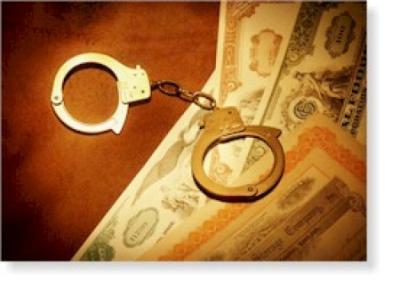Where are the Prosecutions? Cracking Down on Financial Fraud, A Precondition for Economy Recovery

As I have repeatedly pointed out, the economy cannot stabilize unless the fraud which led to the crisis (see this, this, this and this) is openly discussed.
As Shahien Nasiripour notes today today, Alan Greenspan didn’t think regulators should even pay any attention to fraud:
He didn’t believe that fraud was something that needed to be enforced or was something that regulators should worry about, and he assumed she [Brooksley Born] probably did. And of course she did. I’ve never met a financial regulator who didn’t feel that fraud was part of their mission, but that was her introduction to Alan Greenspan.”
But, this week, Greenspan admitted in testimony to the Financial Crisis Inquiry Commissioner that regulators do need to crack down on fraud:
This week, in response to a question from Financial Crisis Inquiry Commissioner Heather Murren, who asked Greenspan whether subprime lenders should now be supervised by the Federal Reserve, Greenspan said:
“Well, first of all, remember you have to distinguish between supervision and enforcement. A lot of the problems which we had in the independent issuers of subprime and other such mortgages, the basic problem there is that, if you don’t have enforcement, and a lot of that stuff was just plain fraud, you’re not coming to grips with the issue.”
In a paper on the financial crisis he presented last month at the Brookings Institution in Washington, Greenspan did not mention the word “fraud”, in any of its forms, even once in the 66-page presentation.
His prepared remarks this week, though, mentioned it three times.
“[I]t is one thing to promulgate rules, and quite another to successfully implement them. Rules to prevent fraud and embezzlement have failed as often as not. Parenthetically, in the years ahead, we will need far greater levels of enforcement against misrepresentation and fraud than has been the practice for decades,” he told the investigatory panel.
Greenspan also called for “enhanced” enforcement against “misrepresentation and fraud” going forward as one desired part of the government’s arsenal in trying to avoid future crises in which taxpayers are forced to bail out private companies.
And the Wall Street Journal is running an important story showing that all of the big bank primary dealers – not just Lehman – have engaged in fraudulent accounting for years:
Major banks have masked their risk levels in the past five quarters by temporarily lowering their debt just before reporting it to the public, according to data from the Federal Reserve Bank of New York.
A group of 18 banks—which includes Goldman Sachs Group Inc., Morgan Stanley, J.P. Morgan Chase & Co., Bank of America Corp. and Citigroup Inc.—understated the debt levels used to fund securities trades by lowering them an average of 42% at the end of each of the past five quarterly periods, the data show. The banks, which publicly release debt data each quarter, then boosted the debt levels in the middle of successive quarters.
The fact that the existence of widespread fraud is finally being addressed in polite company is a good first step.
But where are the prosecutions?
Neither happy talk nor propaganda will fix the economy. The governments of the world have spent trillions trying to wallpaper over the fraud, and have becomeinsolvent doing so.
But it’s not working. Indeed, polls show that people no longer trust our economic “leaders”. See this and this.
Only honest talk – and holding the people who committed fraud accountable – will stabilize the economy.

